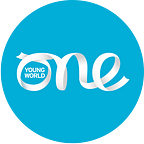I’m from Eritrea. This what being a refugee is like
Written by Meron Semedar.
Escaping oppressive governments or war zones offers great comfort and consolation. One might be able to enjoy the freedom and ultimate sigh relief of escape for a brief moment, but a new life, one that is hard to concretely imagine, begins almost immediately. As a refugee, within hours or days you are transferred to a refugee camp. God knows for how long.
Very few and lucky ones get to enjoy a life after resettlement in a democratic nation with legitimate rights.
But for the overwhelming majority, being a refugee is a life they never wished for. For those who resettled to safer places, adapting to new cultures, languages and integrating into new societies are some of their challenges. In recent years, the rebirth of racism and far right movements with anti-refugee slogans have made integration for many refugees so much harder.
For many asylum seekers, the luck of receiving a work permit upon arrival is one that actually brings heavy trauma, even if they have entered a safer country.
For those living in refugee camps, they often reside in overcrowded environments with few amenities. Life in a refugee camp is like living in an open air prison. You might be highly educated, you could be a businessman, or a student who wants to attend university to change the course of your country for good. Yet you are left helpless with all your skills and talents waiting for resettlement, or for things to change back home.
In a protracted refugee situation, generation after generation is born to tough situations inherited from their parents or grandparents. A person in a refugee camp is not allowed to work which is the worst disability of life. There are almost no opportunities even if you want to break dependency on donor organisations.
If you are lucky, you are given a tent by UNHCR, otherwise you have to build your own room by cutting trees. which often leads to the degradation of the area near the refugee camp.
Your are dependent on aid and donor organizations for foods. 13 kilos of either wheat or maize, 1 litre of oil, peas, a small portion of salt and sometimes lentils is what is given to you to survive a month.
The only way one can survive is by living in groups of five or more. Some are forced to sell portions of their monthly food stipend to gain currency and use it to have someone grind the wheat or maize or to buy vegetables. Many camps are also unsafe; they become easy targets for human traffickers.
The winter season is the worst season for refugees, be it in a snowy or dry area. Living in a tent is awful. People get sick very easily, there are regular malaria, cholera and diarrhea outbreaks. There are only basic clinics available which don’t offer treatments for complicated diseases, at which point they refer you to another hospital. It’s so complicated to get a referral for a better treatment and the necessary paperwork is too much for those processing to handle effectively.
Someone needing help is most likely going to die while waiting. You wish you will not ever get sick, but it is impossible.
The life of a refugee is a life trapped in limbo without any foreseeable end.
Out of desperation and loss of hope, refugees do whatever it takes to free themselves from their situation. In recent years, many Syrian, north African and Rohingya refugees have taken perilous routes and crossed deserts to escape civil war, oppressive regimes and squalor in refugee camps.
The vast majority of refugees have little exposure to the outside world. At the One Young World Summit 2016 held in Ottawa, Canada, four refugees shared their experiences, including myself. The refugees from one of the biggest refugee camps in Africa, Kakuma, said that they never knew about the Olympics nor had they seen a TV before.
As talented athletes, they earned their spot on Team Refugee having never heard of the Games until a few months before. The overwhelming cheers they received as they entered the stadium in Rio made them feel as if they entered a planet they never knew before. Such representation of refugees at an international event has brought hope in the face of darkness for the 65.6 million refugees around the world. By resettling them, such a number could be reduced and our world could act with more compassion towards the most helpless group of human society.
============
Meron Semedar is a One Young World Ambassador from Eritrea, who is passionate about addressing the current human rights situation in his home country and the rest of the world. He is also the Founder of Lead Eritrea (Where Eritrean Youth Start Leading) and Refugee Student Association.
